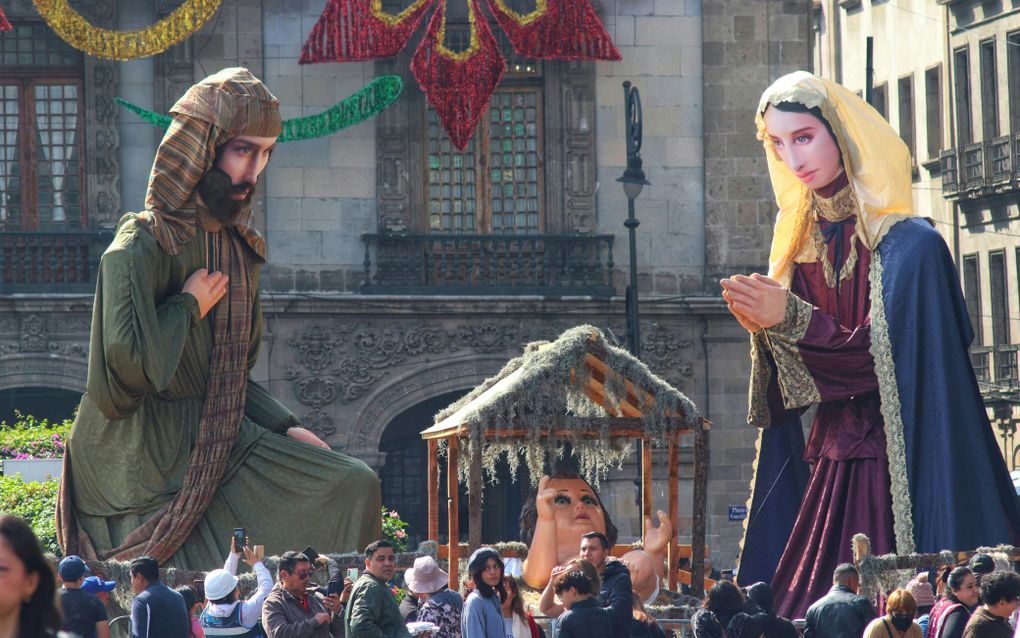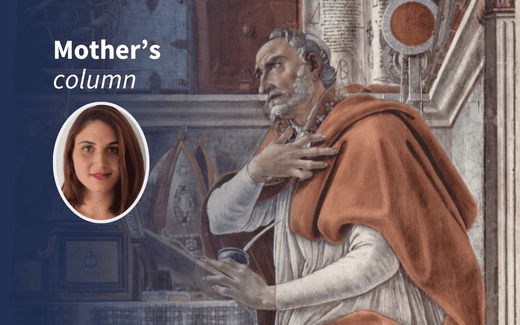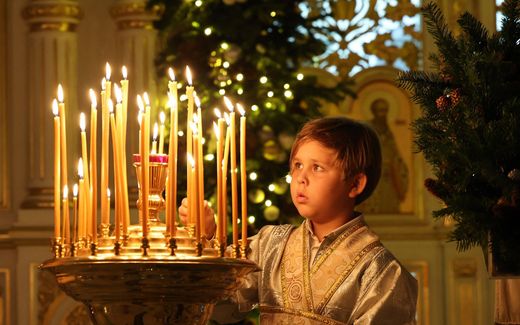Does Christmas really have pagan roots?

A nativity display in Mexico City, Mexico. Photo Pexels, Bruno Cortés
Christian Life
No doubt, Christmas is the most celebrated holiday in the world, both for Christians and non-Christians. And yet, there is a minority of Christians who deliberately choose not to celebrate Christmas anymore. What is the reason behind that?
Is it because they are frustrated to see the true message of Christmas polluted by the legend of Santa Claus? Not quite.
According to these people, Christmas would be nothing more than a pagan holiday dressed in Christian garbs. Strangely enough, these Christians thus find themselves allied with pagans who would like to eliminate Christmas from the calendar.
You, too, may know some Christians who do not celebrate Christmas. But is such a stance well founded?
To answer that question, we must put this question into perspective first. Biblically speaking, Paul is very clear on this matter: It makes no difference whether we celebrate a feast or not, as long as anything we do is for the glory of God (cf. Romans 14, Colossians 2).
Purim
People who reject Christmas celebrations usually have several arguments. Let's see if these have a Biblical or historical basis.
So, here are a few claims usually advanced:
We should not celebrate Christmas because it is not a celebration instituted in the Bible.
Christmas is indeed not part of the celebrations instituted by the law of God (see Exodus 23 or Leviticus 23). However, this same law did not order the feast of Purim either. Yet, it was instituted by Mordecai after the deliverance of the people of Israel after they were threatened with extermination (Esther 9). Had Mordecai sinned by implementing a new feast? The Bible doesn’t seem to suggest that.
And what about Jesus? He himself celebrated Hanukkah (John 10:22), a holiday that was not ordered by the law of God. If Christians were to limit their celebrations exclusively to those ordained by the law, they would also have to renounce Easter, Ascension and even birthdays. Generally speaking, the fact that the Bible does not institute a celebration does not mean that it prohibits it.
The Emperor Constantine instituted the feast of Christmas in the fourth century in order to give a Christian garb to the pagan festival of Saturnalia, celebrated at the same time of the year.
This is one of the most common arguments raised against the celebration of Christmas. The Saturnalia was a pagan festival with a movable date. It could be held sometime between late November and a few days before December 25th. This festival was particularly immoral because of the human sacrifices that were offered.
It was indeed the Emperor Constantine who made Christmas official on December 25th. And as a Christian emperor, it is also probably correct to believe that he wanted to suppress the Saturnalia and its immoral practices.
But while these two points about the emperor may be correct, we still cannot conclude that his goal was to dress the pagan festival of Saturnalia in Christian garbs. It is equally possible –and maybe even more probable– to believe that his motivation was to eliminate Saturnalia, and that he saw Christmas as an excellent way to stifle this immoral celebration.
But why did Constantine choose December 25th to celebrate Christmas? Is this not a proof that his only goal was to give a Christian appearance to a pagan festival? How could he know that Jesus was born on December 25th?
Although Constantine did indeed institute Christmas on December 25th, this does not mean that he invented this date by himself. In reality, the emperor had just implemented a celebration that had already been a tradition within the Church for a long time.
Several writings of the church fathers indeed show that the early church celebrated Christmas on December 25th, the day on which they believed Jesus was born.
For example, more than a century before the reign of Constantine, the historian Sextus Julius Africanus (c. 160 – c. 240) and the Bishop of Rome Hippolytus (170-235) believed that Jesus was born on December 25th.
And the belief that Jesus was born on December 25th may even go back to just a few decades after Jesus’ resurrection. The writings of the first bishop of Antioch Evodius (d. 70), who is considered a direct successor to the apostles, seem to indicate that he believed that Jesus was born on December 25th.
The early church actually dated the annunciation of the angel Gabriel to Mary on the 14th day of the month of Nisan, that is, March 25th. Jesus would therefore have been born nine months later, on December 25th.
Passing on judgment
You may or may not be convinced by these arguments. However, in either case, as already said above, the apostle Paul taught the churches not to judge others regarding the observance of special days:
“One person considers one day more sacred than another; another considers every day alike. Each of them should be fully convinced in their own mind. Whoever regards one day as special does so to the Lord.” (Romans 14:5-6)
That being said, there is simply no historical or biblical basis for believing that Christmas has pagan origins and thus should not be celebrated.
Moreover, it would be strange that the same God who instituted the Passover festival in order to celebrate the Exodus of the people of Israel from Egypt would forbid his people, the church, from celebrating the birth of Jesus. After all, He is the One Who, through His death and resurrection, accomplished the ultimate Exodus of God’s people from death to eternal life.
Therefore, whether or not you are celebrating this year, let me wish you a Merry Christmas!
The Puritans and Christmas
Although this is less the case in continental Europe, some Protestants in the Anglo-Saxon world who do not celebrate Christmas argue also that the Puritans of New England banned this celebration.
This was indeed the case. The second governour of Plymouth Colony in Massachusetts, William Bradford (1590-1657), effectively banned all newcomers from taking a day off at Christmas.
But what was the reason behind the ban on celebrating Christmas? Governor Bradford’s official statement shows that his objections to Christmas had nothing to do with the arguments brought today:
“If they made the keeping of [Christmas] a matter of devotion, then let them keep [it in] their houses, but there should be no gambling or revelling in the streets.”
The fundamental problem the Puritans faced related to public order. Christmas had effectively become a celebration when all debauchery was allowed, such as gambling or drinking. While this law may be debatable, the Puritans certainly had no objection to the meaning of Christmas itself.
The Puritans had their tradition from the Calvinist Reformation. Both in England and Scotland, many Protestants refused to celebrate Christmas. Some of the Presbyterian churches in Scotland in the tradition of the Reformer John Knox– still stick to that position to the present day.
Related Articles











